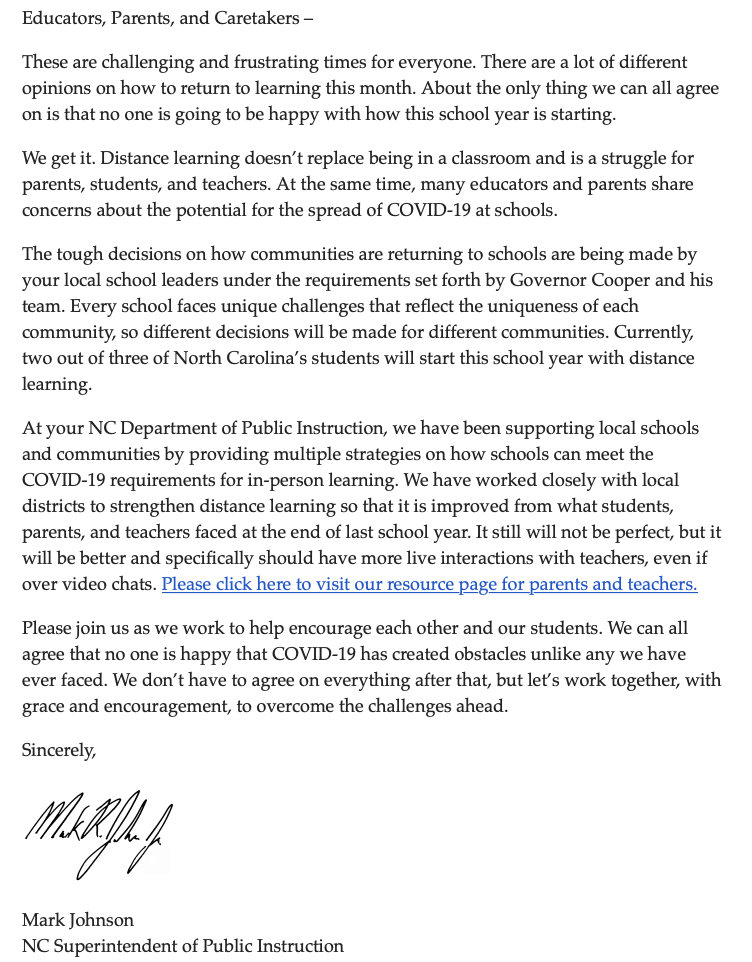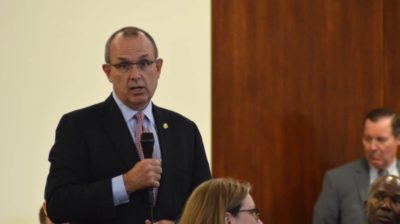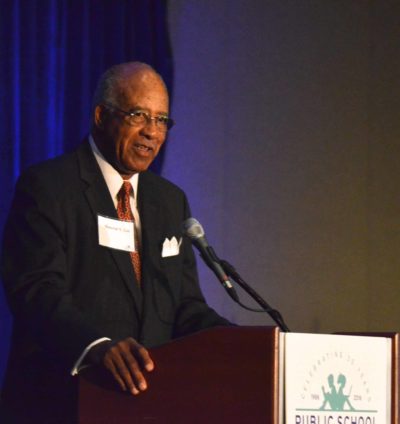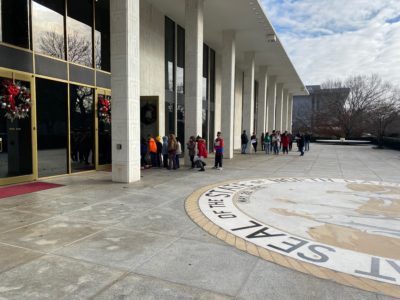
Students may not have to take standardized tests until they return to school in-person, and the state’s two virtual charter schools may boost enrollment to meet increased virtual learning demands this fall.
These were some of the topics tackled by the State Board of Education when they met this week in a hybrid model, with some Board members meeting in person and others attending virtually.
Classes start at most schools on August 17. Gov. Roy Cooper decided in July that schools could open under reduced capacity with social distancing this fall (plan B), but districts also have the opportunity to go solely remote if they want to (plan C). Many districts are doing so, at least for the beginning of school.
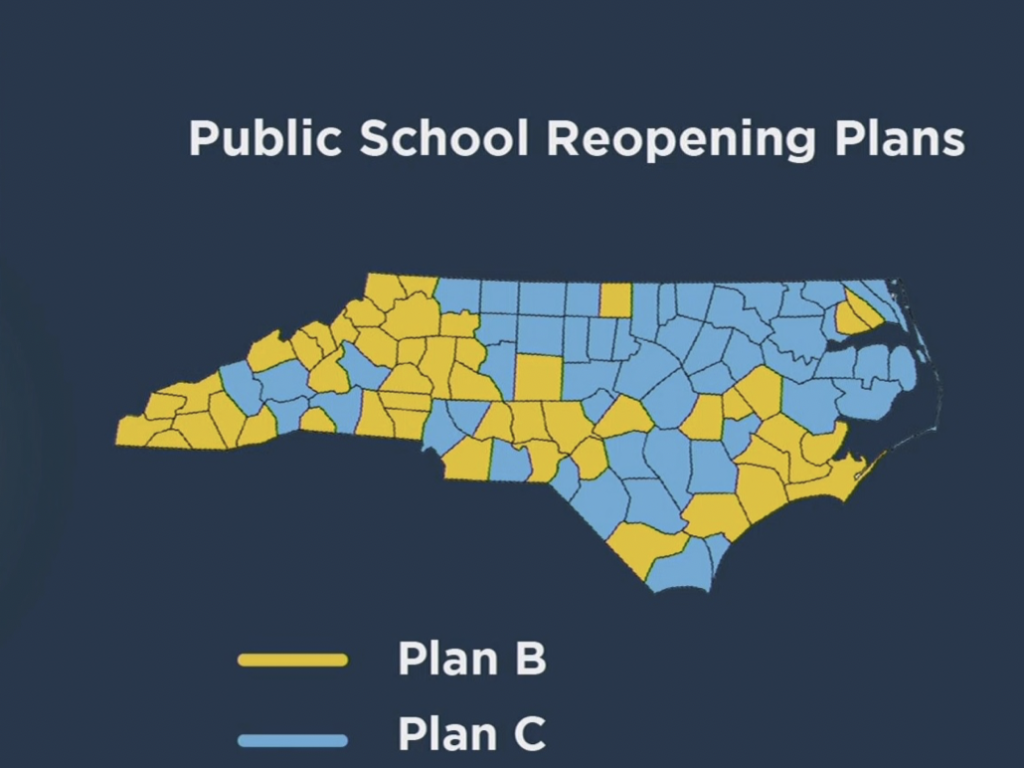
As the state faces a fall semester that is going to look vastly different than in the past thanks to COVID-19, districts are having to deal with supporting remote learning and figuring out how students are going to take standardized tests mandated by the state and federal government.
Testing
Some students may have to take standardized assessments in person this fall, even if they’re learning from home. That is one possibility that was approved by the State Board of Education during this week’s monthly meeting.
The state Department of Public Instruction (DPI) recommended that students take these tests either when they return to school for in-person instruction, or when the district decides to administer the tests “at a school-sanctioned site that meets the North Carolina Department of Health and Human Services guidelines for COVID-19.”
The State Board ultimately approved these options.
At the end of last year, schools received a waiver from the state and federal government on required testing, but that hasn’t happened for the fall, which means standardized testing may need to go ahead as normal.
Tammy Howard, director of accountability services at DPI, said at the State Board meeting that the information DPI is hearing from the federal government is that a waiver won’t be forthcoming. One is possible in the spring, she said. But it also might not happen at all.
Even though many districts have chosen to go remote, at least for the beginning of the school year, there are still a variety of standardized tests that students must take. The results of these tests are required for a variety of reasons, including allocations of bonuses and accountability.
These tests include the Beginning-of-Grade 3 test, End-of-Grade reading, math, and Science tests, and End-of-Course tests in a variety of subjects.
Howard said that even though the school year is only about to begin, DPI is trying to think long term about the tests that will be required throughout the school year. That is why the State Board is being provided recommendations not only on beginning of grade tests, but also year-end tests, she said.
The State Board also approved giving districts the option of administering the end-of-grade tests from last year only for informational purposes for teachers and parents. These tests could be taken at school or remotely.
Virtual charter schools
The State Board also discussed the possibility of increasing the enrollment cap at the state’s two virtual charter schools to deal with increased demand for online learning.
The two schools, NC Cyber Academy and NC Virtual Academy, have a wait list of almost 9,000 students who want to enroll in the schools. Meanwhile, both schools have also come under a lot of criticism because of their performance. Both schools had a D performance grade for the 2018-19 school year and did not meet academic growth. Those grades have been consistent for years.
Lt. Gov. Dan Forest — a member of the State Board — said that there have been thousands of calls from people trying to find virtual options for their students. He said the two virtual charter schools could help fill the need.
“Sometimes, some of these (options) are right under our nose and we don’t seem to pay too much attention to them,” he said.
Dave Machado, director of the office of charter schools at DPI, said that both schools said they would be willing to increase enrollments but only to the extent that they can adequately handle the increased load. The added enrollment would necessitate the hiring of more teachers, for example.
“They only want to do it with the numbers that they can successfully enroll and educate,” Machado said.
The enrollment of the two virtual charters is capped because both programs are pilots running through the 2022-23 school year, though the State Board has the power to allow increases in enrollment.
Board member JB Buxton balked at the proposal, noting that the State Board has discussed the need for the schools to improve their instruction and, at least for one of the schools, keep enrollment down until quality improves. He said that talking at this late date about increasing enrollment — necessitating more staff, computers, and teachers — may be putting the schools in a position to fail. He also noted that the number of students on the wait list aren’t much when compared to the more than 1.5 million students in the state.
“It’s not like we have a stampede that we’re trying to address here,” he said.
Forest, however, pointed out that almost 9,000 students is more than the total number of students in many districts in the state. He also said that the enrollment would be fluid, meaning students would only be accepted as the schools are able to train teachers to meet the demand.
Many districts in the state are creating virtual academies themselves to deal with the increased demand for online learning. The Board discussed whether an increase in enrollment for the virtual charters would be focused on those districts that don’t have such academies.
Machado was also asked where the students who want to join the virtual charters are coming from. He said they’re coming from all over the state.
Board Chair Eric Davis said that increasing enrollment at the schools should happen only if quality can be assured.
“It’s one thing to have choice. We have to make sure we’re providing quality choice,” he said.
Davis said staff at DPI needed to come back to the State Board with a definitive plan, both for how big the increase at the two virtual charters would be and how quality would be assured, before Board members could make a decision.
The Board is expected to take the issue up again in the next couple of weeks.
Average daily membership
The State Board of Education is calling on the General Assembly to take action to mitigate the problem that will arise this fall with student population and funding.
Schools are allocated money by the state based on average daily membership (ADM). Basically, districts get money based on the number of students they have attending school at particular points in time. The districts get a budget based on what enrollment they’re projected to have, and then the state adjusts their budget after checking in early fall to see how many students they actually have.
Because districts are expecting large decreases in enrollment in the fall due to COVID-19, there is fear that there will be a subsequent reduction in funding from the state, leaving districts underfunded in a time of crisis and when schools return to normal.
The State Board voted to ask the General Assembly to take the necessary legislative action to make sure districts don’t lose funds.
In memoriam
The State Board of Education honored Teicher Patterson, a Halifax County principal who died due to COVID-19. Patterson worked 28 years in the district as a music teacher, assistant principal, and principal. He was also the district’s 2019 principal of the year. Here is the resolution:
Letter to parents and teachers
State Superintendent of Mark Johnson sent the following letter to parents and teachers in advance of the upcoming opening of schools for the fall.
